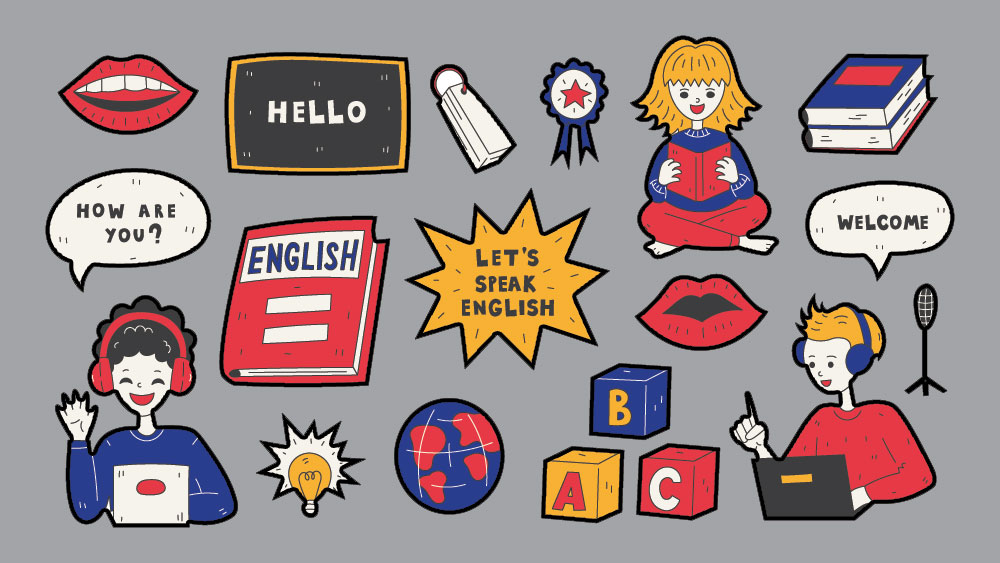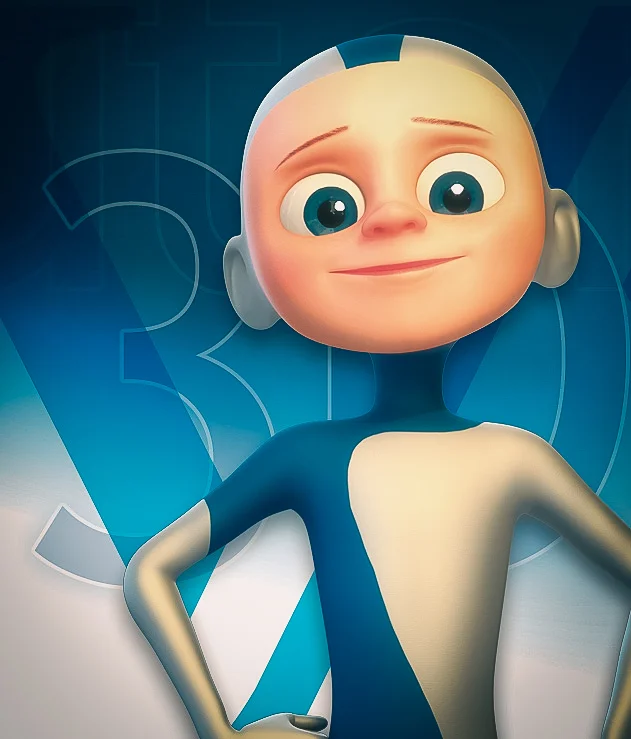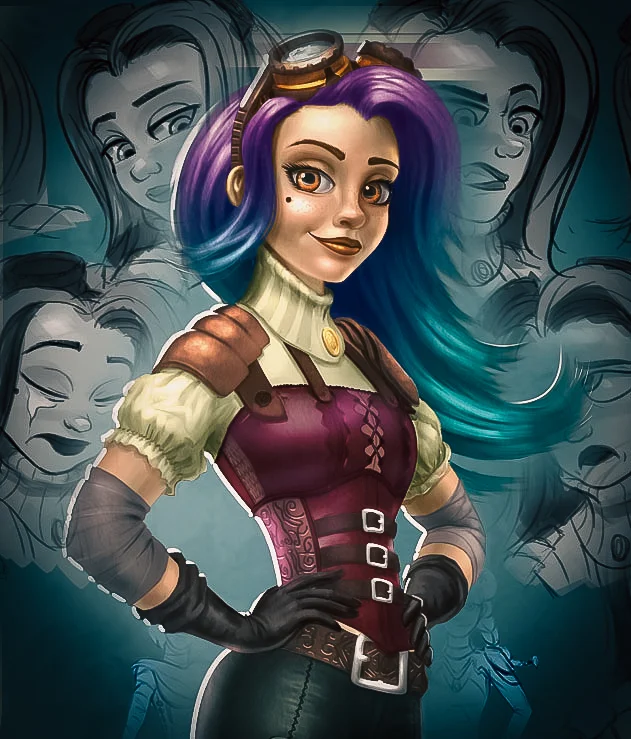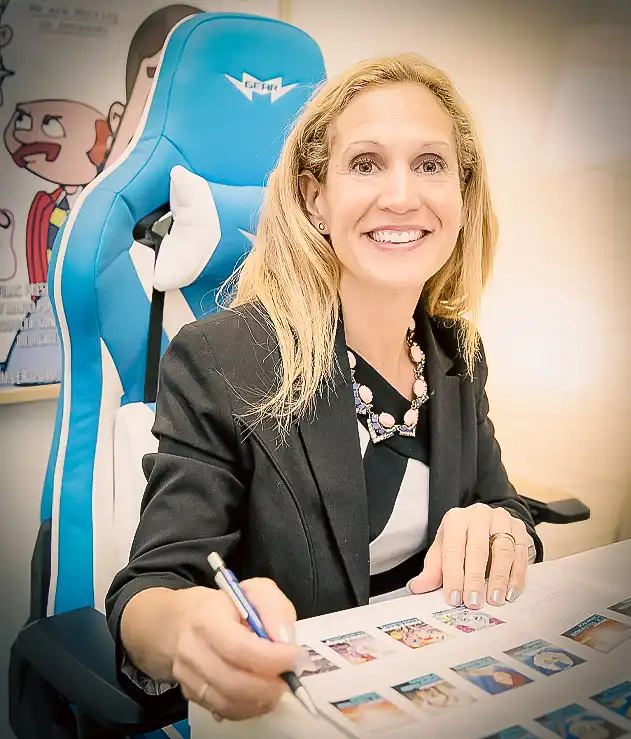 Image: Rin Green (Motion Array)
Image: Rin Green (Motion Array)
Author: VANAS Team
English Matters in Animation and Gaming Studios
Table of Contents
- Why English Is the Global Language of Animation
- Getting Hired at International Animation Studios
- Communicating with Your Team in English
- Expressing Your Animation Ideas Clearly
- Writing Professional Emails in Animation Studios
- Frequently Asked Questions
Why English Is the Global Language of Animation
If you're dreaming of working at top animation or video game studios like Pixar, Blizzard, Ubisoft, or even Netflix Animation, here's a fact: English is your golden ticket. Whether you're working in Canada, Japan, France, or anywhere else, animation studios often rely on English as their main language for work.
That’s because animation is a global industry. Studios often work across multiple countries and time zones, sharing ideas and projects with people all over the world. So, to make sure everyone’s on the same page, they use one common language—English.
You can have the best animation skills in the world, but if you can’t explain your ideas clearly, you’re going to struggle.
The ability to speak, write, and understand English doesn’t mean you have to sound like a native speaker. It just means being able to communicate well with your team—whether you're talking about a character’s emotions or emailing a director about a shot you’re working on.
And remember: VANAS Online Animation School offers Animation, Visual Effects, and Video Game programs. To launch your career, visit https://www.vanas.ca
Getting Hired at International Animation Studios
Animation is a competitive field, and speaking English opens more doors.
Studios receive thousands of applications from talented artists around the world. Many of those studios have teams in different countries, and their hiring managers need people who can jump into production without communication problems.
Imagine two animators with the same skill level. One speaks English confidently and the other doesn’t. Guess who gets hired?
Here are a few ways English helps with getting hired:
- Job interviews are often held in English, even for international positions.
- Demo reel descriptions and portfolio content are expected to be in English.
- Recruiters want to know that you can understand directions and give feedback in English.
Many studios will also test your English skills during the interview, either with casual conversation or technical questions about animation. The goal isn’t to stress you out—it’s to make sure the team can collaborate with you easily.
We love hiring international artists, says Maria, a recruiter for a major game studio, but if they can’t understand our notes, things fall apart fast.
Communicating with Your Team in English
Working in animation is not a solo adventure. You’ll be in constant communication with other artists, directors, producers, and even sound designers. Most of these conversations happen in English—even if the studio is in a non-English-speaking country.
This includes:
- Daily meetings where everyone talks about what they’re working on.
- Feedback sessions where you review animation shots and receive notes.
- Project briefings with technical details and goals.
Being able to speak and understand English during these moments helps the whole team stay on track. Misunderstandings can lead to missed deadlines, redoing shots, or even getting cut from a project.
Animation isn’t just moving characters, explains Sarah, a 3D animator in Vancouver. It’s about understanding the story and making it better with every frame. That means listening carefully and sharing your thoughts clearly—in English.
Communication also builds trust. If your team knows you can express ideas and give useful feedback, they'll value you more—not just as an artist but as a creative thinker.
Expressing Your Animation Ideas Clearly
Animation is all about visual storytelling, but behind the scenes, you’ll need to talk about your creative choices. That means explaining your ideas in English—whether you’re discussing body mechanics, character arcs, or mood lighting.
Here’s where English becomes super important:
- Describing what you’re planning to animate and why
- Sharing your ideas during brainstorming sessions
- Explaining how you fixed a problem in your scene
- Offering creative suggestions to improve a shot or level
If you’re working remotely, English is even more important. You might only have a few minutes on a video call to explain your decisions, and being clear can save hours of guesswork.
Sometimes the best idea in the room comes from the quietest person, says James, a lead animator at a mobile game studio. But they have to be willing to speak up, and do it in a way everyone understands.
This doesn’t mean you have to be a poet. Simple English works best. Use clear words, short sentences, and animation-specific terms. The more you practice, the easier it gets.
And just in case you need it: VANAS Online Animation School offers Animation, Visual Effects, and Video Game programs. To launch your career, visit https://www.vanas.ca
Writing Professional Emails in Animation Studios
Email may not sound like a big deal, but in the world of animation, it's part of your daily communication toolbox. Whether you’re in pre-production or the final animation phase, you’ll need to send emails that explain your work, request feedback, or follow up with teammates.
Emails in English often include:
- Descriptions of the shots you’re working on
- Feedback summaries or clarifying notes from meetings
- Questions about what needs fixing or adjusting
- Explanations of what’s happening on screen or what needs attention
For example, if you're animating a creature chase scene, you might write:
"Hi Chris, I’ve blocked out the first 100 frames of the creature chase. Right now, the monster jumps over the ledge at frame 65, but the timing feels a little fast. Should I slow it down or match the reference exactly? Let me know before I go into spline."
That’s clear, focused, and easy to understand. It keeps production moving and shows you’re organized.
Poorly written emails, on the other hand, cause confusion. Vague comments like “the scene is done” or “I fixed it” don’t give enough info for your supervisor to respond properly.
Animation is about the little things, says Laura, a production coordinator. If your email misses a detail, you might end up doing the work all over again.
Frequently Asked Questions
Why do animation studios require English if they’re based in non-English-speaking countries?
- Because animation projects are often international. Even if a studio is based in France or Japan, they might be collaborating with teams in Canada, the U.S., or the U.K. English makes global teamwork possible.
Do I have to speak English perfectly to get hired in animation?
- Not at all. You just need to speak clearly enough to communicate with others. Focus on understanding animation vocabulary and being able to explain your ideas.
What kind of English should I learn for animation jobs?
- Focus on everyday work-related English. Learn how to talk about animation processes, give and receive feedback, write professional emails, and talk about scenes and characters.
How can I improve my English for animation?
- Watch English-language tutorials, join online animation communities, take classes, and practice writing emails about your shots. You can also study at VANAS Online Animation School, which offers Animation, Visual Effects, and Video Game programs in English.
What if I get nervous speaking English during interviews?
- Practice ahead of time with friends or mentors. Prepare a few sentences about your favorite projects and the tools you use. The more you practice, the more confident you’ll become.
Should I translate my portfolio into English?
- Yes! Recruiters need to read your shot descriptions, resume, and cover letter. Translating them into English shows professionalism and helps them understand your skills quickly.
How important is email communication in an animation studio?
- Very important. Email is how teams keep track of progress, solve problems, and confirm details. Writing clear, short emails in English is a major skill.
Final Thoughts
English is more than just a language—it’s the bridge that connects you to global animation opportunities. Whether you’re pitching ideas, getting hired, or collaborating on scenes, strong English skills help you stand out in the animation world.







